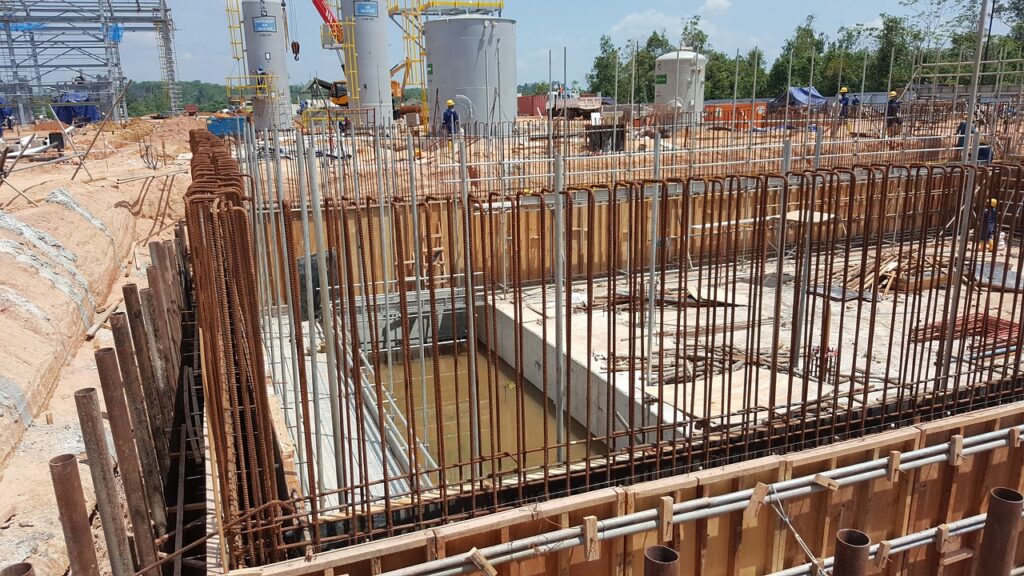Securing your first job as a civil engineering graduate can be both exhilarating and challenging. As you step out of the academic realm and into the professional arena, the competitive job market may seem daunting. However, with the right guidance and strategic approach, you can navigate this landscape with confidence. In this comprehensive guide, we will delve into the key steps and invaluable insights that will empower you to not only secure your first job but also set a solid foundation for a successful career in civil engineering. (watch my personal story)

Let’s dive into the actionable steps that will equip you for success in the competitive landscape of the civil engineering job market.
1. Education: Laying the Foundation
- Pursue a bachelor’s degree in civil engineering from a recognized university in India.
- Engage actively in coursework, focusing on gaining a strong theoretical foundation in core civil engineering subjects.
2. Gaining Practical Experience
- Seek internships with reputed construction firms, government agencies, or consulting firms during your academic breaks.
- Participate in vocational training programs to gain hands-on experience and exposure to real-world projects.
- Example: A civil engineering student at IIT Delhi secures a summer internship with Larsen & Toubro (L&T), one of India’s largest construction and engineering conglomerates. During the internship, the student works on a real-time project related to the construction of a major infrastructure project, gaining hands-on experience and exposure to L&T’s work culture.
3. Building Connections
- Attend industry conferences, seminars, and workshops organized by institutions like the Institution of Engineers (India) or the Confederation of Indian Industry (CII).
- Join professional networking groups on platforms like LinkedIn to connect with industry professionals, alumni, and fellow graduates.
4. Skill Development:
- Acquire proficiency in software widely used in the Indian civil engineering sector, such as AutoCAD, and STAAD.Pro, ETABS, and GIS tools.
- Pursue additional certifications or short-term courses to enhance your skills and stay updated with industry trends.
5. Crafting a Document of Achievements:
- Prepare a comprehensive resume that highlights your academic achievements, internships, and any relevant projects you have worked on.
- Quantify your achievements and showcase any awards or recognition received during your academic journey.
6. Exploring Opportunities:
- Create profiles on popular job portals in India, such as Naukri.com, Indeed, and LinkedIn Jobs.
- Regularly check the career sections of construction companies, infrastructure firms, and government organizations for job openings.
Reputed Indian Civil Engineering Companies & their Hiring Processes:
- Larsen & Toubro (L&T):
- L&T recruits through campus placements, direct applications, and walk-in interviews.
- The hiring process includes written tests, technical interviews, and HR interviews.
- For experienced hires, L&T often looks for specific project experiences and technical expertise.
- The company places a strong emphasis on a candidate’s problem-solving abilities and adaptability.
- Larsen & Toubro (L&T) Official Website
- Tata Projects:
- Tata Projects recruits through campus placements, job portals, and referrals.
- The hiring process typically involves technical interviews, group discussions, and HR interviews.
- The company values candidates who showcase a passion for engineering and a commitment to safety standards.
- Tata Projects often looks for candidates with strong project management skills and a track record of successful project delivery.
- Tata Projects Official Website
- Shapoorji Pallonji:
- Shapoorji Pallonji hires through campus placements, industry-specific job portals, and employee referrals.
- The recruitment process includes technical interviews, assessments, and HR interviews.
- The company seeks candidates with a strong foundation in civil engineering principles and a proactive approach to problem-solving.
- Shapoorji Pallonji values teamwork and effective communication skills in its hiring process.
- Shapoorji Pallonji Group Official Website
- Hindustan Construction Company (HCC):
- HCC advertises job openings on its official website and also recruits through job portals.
- The hiring process involves technical interviews, assessments, and HR interviews.
- HCC looks for candidates with a solid understanding of construction practices and a commitment to quality.
- The company often assesses candidates based on their ability to adapt to challenging project environments.
- Hindustan Construction Company (HCC) Official Website
- Reliance Infrastructure:
- Reliance Infrastructure recruits through campus placements, online applications, and job portals.
- The hiring process typically includes technical interviews and HR interviews.
- The company values candidates who demonstrate a good understanding of civil engineering principles and a keen interest in innovation.
- Reliance Infrastructure often looks for candidates with a strong focus on project timelines and cost management.
- Reliance Infrastructure Official Website
7. Government Job Opportunities:
- Monitor job openings in government organizations like the National Highways Authority of India (NHAI), the Public Works Department (PWD), and various state public service commissions.
- Prepare for competitive exams conducted by these organizations for entry-level positions.

8. Campus Placements:
- Leverage your university’s placement cell to explore job opportunities and participate in on-campus recruitment drives.
- Attend placement sessions organized by companies specifically targeting civil engineering graduates.
9. Professional Certifications: Enhancing Credibility
- Consider pursuing additional professional certifications relevant to the Indian construction industry, such as the Project Management Professional (PMP) or Leadership in Energy and Environmental Design (LEED) certification.
- Certifications add credibility to your profile and demonstrate a commitment to professional development.
10. Interview Preparation:
- Brush up on common technical interview questions related to civil engineering concepts and practices.
- Be prepared to discuss any specific projects you have worked on, highlighting your role, challenges faced, and outcomes achieved.
11. Soft Skills Development:
- Develop strong communication skills as effective communication is crucial in the workplace.
- Showcase your ability to work collaboratively by sharing examples of successful teamwork during interviews.
- Example: A civil engineering professional at Shapoorji Pallonji emphasizes effective communication during a project presentation. Clear and concise communication not only ensures project stakeholders understand complex engineering concepts but also enhances teamwork and collaboration within the project team.
12. Adaptability and Flexibility:
- Demonstrate adaptability by sharing instances where you successfully navigated challenges or learned from unexpected situations.
- Showcase a willingness to learn and stay flexible in your approach to problem-solving.
Conclusion:
Securing your first job as a civil engineering graduate in India requires a combination of a strong educational foundation, practical experience, networking, and continuous skill development. By following these steps, graduates can navigate the competitive job market in India and embark on a successful career in civil engineering.

